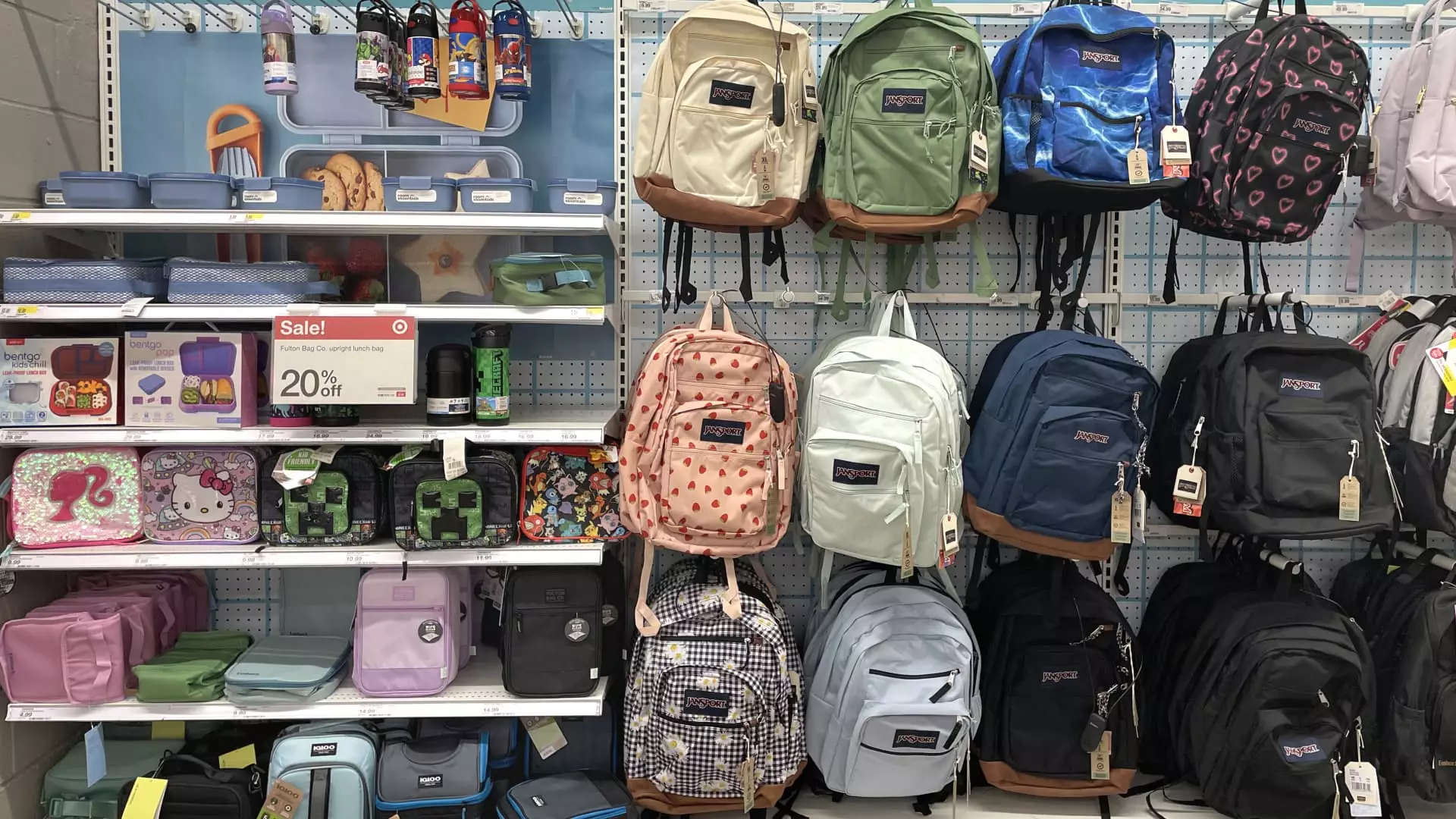As the new academic year approaches, families find themselves caught in an increasingly hostile economic environment that challenges their ability to provide for their children’s educational needs. Behind the cheerful scene of shopping aisles and colorful supplies lies the sobering truth: inflation and ongoing tariff disputes are quietly eroding purchasing power, making what was once routine now seem burdensome and stressful. For many families, it’s no longer just about buying supplies; it’s about surviving an economic storm that threatens to deepen existing inequalities.
Recent data paints a distressing picture. Nearly one in five parents feels the strain of school-related expenses, and a shocking 39% express that they simply cannot afford the necessary supplies this year. These figures aren’t just statistics—they’re wake-up calls highlighting a growing gap between economic reality and the ideal of equal opportunity in education. As inflation pushes prices higher, families are forced to make tough choices: delay purchases, buy used items, or worse, go into debt just to ensure their children are prepared to start the year. This shift isn’t merely inconvenient; it risks marginalizing children whose families lack the means to keep pace.
The Impact of Tariffs on the Cost of Education
While inflation alone would have been enough to inflate prices, the specter of tariffs introduced under President Trump’s trade policies complicates the picture. These tariffs, which impose additional taxes on imported goods, threaten to inflate costs even further. Yet, paradoxically, the full impact has been somewhat masked due to policy pauses—delays in implementing the new duties have temporarily slowed consumer price hikes for certain items. But this reprieve is only temporary, and analysts warn that once tariffs are fully in place, prices could skyrocket.
This uncertainty fuels anxiety among consumers. Parents who are already stretched thin are now acutely aware that these policies could turn back the clock on affordability. The notion that tariffs might impose higher costs on everyday school essentials, from backpacks to electronics, adds another layer to the economic burden. It effectively signals that the financial sacrifices families are already making may only intensify as these trade barriers tighten. The message is clear: international policies crafted in distant offices can have immediate, tangible effects on the classroom and the home.
What Society Still Fails to Recognize
The broader societal implications are deeply troubling. When children’s ability to access basic educational tools hinges on economic fluctuations and trade politics, we are highlighting a failure in our collective priorities. Education should serve as an equalizer, yet here we are—watching economic policies, not educational policies, dictate access and opportunity. This imbalance fosters a cycle of disadvantage, where the most vulnerable are pushed even further behind, simply because economic policies do not prioritize the needs of everyday families.
Moreover, the trend toward shopping early is a tacit acknowledgment of this volatile environment. Parents know that waiting could mean higher prices and fewer choices. The strategic shift—buying in advance, seeking discounts, or settling for less—reflects a desperate attempt to adapt to an unpredictable landscape. But it’s also a sign of systemic failure: a failure to shield families from the whims of economic and political shifts that should, ideally, have minimal impact on basic educational needs.
Social Implications and Ethical Concerns
Beyond the immediate financial toll, these circumstances raise ethical and societal questions. Are we willing to accept a world where economic turbulence defines children’s preparedness for school? The answer appears to be yes for many, as families grapple with debt or opt to cut corners just to keep pace. This shift has long-term consequences: children from less affluent backgrounds are at risk of falling behind, not due to lack of talent or potential, but because of systemic economic failures that prioritize profit and political maneuvering over societal well-being.
Parents are increasingly feeling compelled to prioritize brand-switching or forego non-essential expenditures altogether. These choices, though understandable, symbolize a broader societal misalignment—one that values short-term dollar savings over long-term educational equity. How can a nation foster social mobility and support the future if the baseline of access is eroded by tariffs and inflation? These are not isolated economic issues; they are moral issues that demand recognition and urgent policy intervention.
The Path Forward: A Call for Democratic Accountability
Considering the current trajectory, it’s clear that the solution isn’t simply about individual shopping strategies. Instead, it calls for a collective reevaluation of our economic priorities—an insistence that policies like tariffs serve the interests of the many, not just the few. A more responsible approach would be one that considers the impact on families, especially those who are already vulnerable. Politicians and policymakers must recognize that trade policies, inflation control, and social safety nets are interconnected; neglecting this interconnectedness risks deepening societal divides.
Furthermore, grassroots advocacy and public pressure are vital. Families must demand policies rooted in fairness, transparency, and shared prosperity. Initiatives such as targeted subsidies, better consumer protections, and safeguarding essential goods from geopolitical conflicts can help restore stability. Only through accountable governance that listens to the voice of the average family can we hope to reverse these damaging trends and ensure schools remain accessible and equitable spaces for every child.
In a society that claims to value its future generations, it’s unconscionable that economic policies continue to side with corporate interests and geopolitical gambles at the expense of everyday families. Building an equitable educational future requires more than just shopping tips and discount hunting—it demands a fundamental commitment to economic justice and political responsibility.

